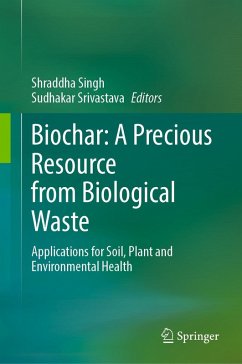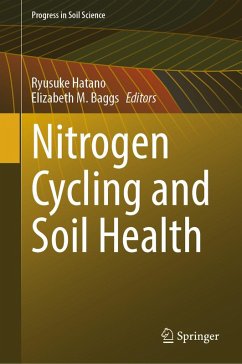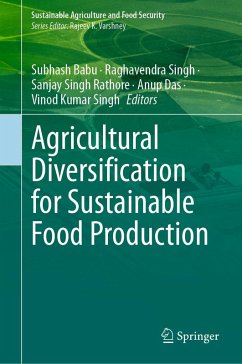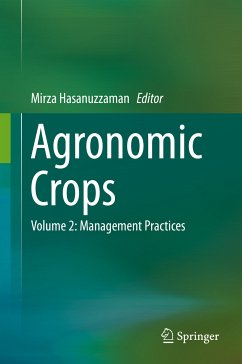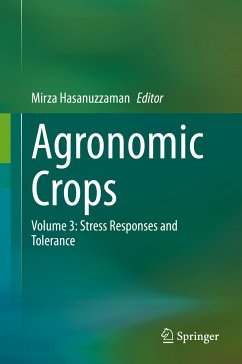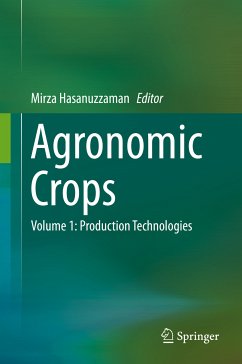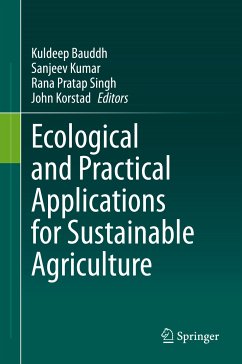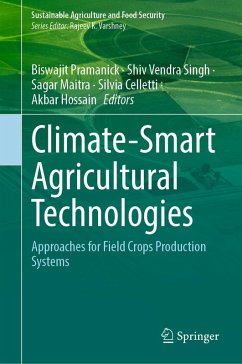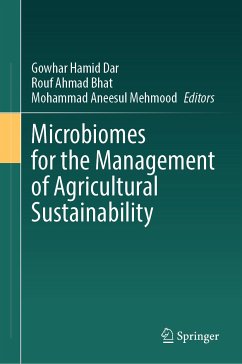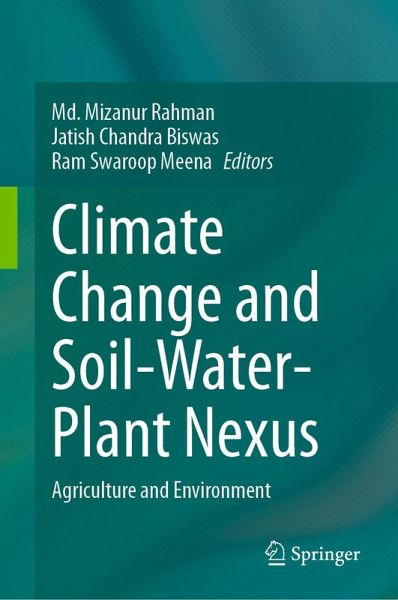
Climate Change and Soil-Water-Plant Nexus (eBook, PDF)
Agriculture and Environment
Redaktion: Rahman, Md. Mizanur; Meena, Ram Swaroop; Biswas, Jatish Chandra

PAYBACK Punkte
88 °P sammeln!
The edited book provides a comprehensive and up-to-date overview of scientific developments in agricultural sustainability under changing climate conditions. It focuses on the linkages among soil, water, and crops and their management options to maintain soil health and ensure a sustainable crop production environment. The book addresses the scenarios and challenges of agricultural sustainability in the face of climatic change.With increasing pressure on our limited land and water resources to produce higher crop yields for a growing global population, the efficient use of soil, water, and fer...
The edited book provides a comprehensive and up-to-date overview of scientific developments in agricultural sustainability under changing climate conditions. It focuses on the linkages among soil, water, and crops and their management options to maintain soil health and ensure a sustainable crop production environment. The book addresses the scenarios and challenges of agricultural sustainability in the face of climatic change.
With increasing pressure on our limited land and water resources to produce higher crop yields for a growing global population, the efficient use of soil, water, and fertilizers is crucial for achieving most of the United Nations' Sustainable Development Goals (SDGs). The book presents climate change mitigation and adaptation options to help achieve these SDGs. It highlights the impact of climate variability on agricultural production and the functions of ecosystems, emphasizing the importance of developing climate-resilient agriculture to sustain food production and reduce greenhouse gas emissions. The book explores the soil-water-plant nexus and its response to changing climate, characterizing seasonal and inter-annual climatic variability in crop growth and yield. Different chapters evaluate the effects of climate change on soil health degradation, depletion of soil nutrients and carbon contents, and crop responses to climate variability.
This book is of interest to academicians, researchers, scientists, capacity builders, and policymakers. Extension personnel will benefit from its insights, and it serves as valuable supporting material for graduate students of agriculture, forestry, ecology, soil science, and environmental sciences in understanding and designing their own research.
With increasing pressure on our limited land and water resources to produce higher crop yields for a growing global population, the efficient use of soil, water, and fertilizers is crucial for achieving most of the United Nations' Sustainable Development Goals (SDGs). The book presents climate change mitigation and adaptation options to help achieve these SDGs. It highlights the impact of climate variability on agricultural production and the functions of ecosystems, emphasizing the importance of developing climate-resilient agriculture to sustain food production and reduce greenhouse gas emissions. The book explores the soil-water-plant nexus and its response to changing climate, characterizing seasonal and inter-annual climatic variability in crop growth and yield. Different chapters evaluate the effects of climate change on soil health degradation, depletion of soil nutrients and carbon contents, and crop responses to climate variability.
This book is of interest to academicians, researchers, scientists, capacity builders, and policymakers. Extension personnel will benefit from its insights, and it serves as valuable supporting material for graduate students of agriculture, forestry, ecology, soil science, and environmental sciences in understanding and designing their own research.
Dieser Download kann aus rechtlichen Gründen nur mit Rechnungsadresse in A, B, BG, CY, CZ, D, DK, EW, E, FIN, F, GR, HR, H, IRL, I, LT, L, LR, M, NL, PL, P, R, S, SLO, SK ausgeliefert werden.



